
The Sun-Kissed Shores of Toliara
Toliara, also known as Tulear, is a coastal gem on the southwest coast of Madagascar. This vibrant city is known for its picturesque beaches, rich culture, and unique biodiversity. The shores of Toliara are adorned with golden sands and the clear blue waters of the Mozambique Channel, making it a perfect destination for beach lovers and water sports enthusiasts alike. Nature enthusiasts will find Toliara fascinating due to its proximity to some of Madagascar's most unique ecosystems. The nearby Reniala Reserve is home to the iconic baobab trees and a variety of endemic bird species. The coral reefs off the coast are teeming with marine life, offering exceptional opportunities for snorkeling and diving. The city itself is a blend of traditional Malagasy culture and colonial influences. Wander through the bustling markets where you can find local crafts, fresh seafood, and exotic fruits. Don't miss the chance to visit the Arboretum d'Antsokay, a botanical garden showcasing the diverse flora of the region. Toliara's laid-back atmosphere and friendly locals make it an inviting destination for travelers seeking a unique and relaxing experience.
Local tips in Toliara
- Visit the Reniala Reserve early in the morning to see the birds and enjoy the cool weather.
- Bring cash, as many local shops and restaurants do not accept credit cards.
- Rent a bicycle to explore the city and surrounding areas at your own pace.
- Try the local seafood dishes; they are fresh and delicious.
- Respect local customs and dress modestly, especially when visiting villages and markets.
The Sun-Kissed Shores of Toliara
Toliara, also known as Tulear, is a coastal gem on the southwest coast of Madagascar. This vibrant city is known for its picturesque beaches, rich culture, and unique biodiversity. The shores of Toliara are adorned with golden sands and the clear blue waters of the Mozambique Channel, making it a perfect destination for beach lovers and water sports enthusiasts alike. Nature enthusiasts will find Toliara fascinating due to its proximity to some of Madagascar's most unique ecosystems. The nearby Reniala Reserve is home to the iconic baobab trees and a variety of endemic bird species. The coral reefs off the coast are teeming with marine life, offering exceptional opportunities for snorkeling and diving. The city itself is a blend of traditional Malagasy culture and colonial influences. Wander through the bustling markets where you can find local crafts, fresh seafood, and exotic fruits. Don't miss the chance to visit the Arboretum d'Antsokay, a botanical garden showcasing the diverse flora of the region. Toliara's laid-back atmosphere and friendly locals make it an inviting destination for travelers seeking a unique and relaxing experience.
When is the best time to go to Toliara?
Iconic landmarks you can’t miss
Reserve Reniala
Discover the vibrant biodiversity and unique ecosystems of Reserve Reniala, a breathtaking nature preserve in Ifaty, Madagascar.
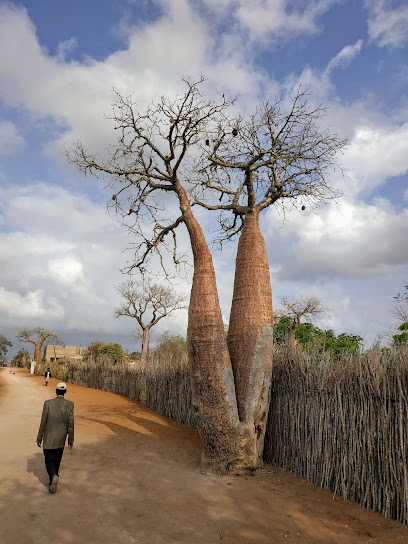
Bakuba Hotel
Discover a blend of comfort and Malagasy culture at Bakuba Hotel, your perfect retreat in Toliara, Madagascar.
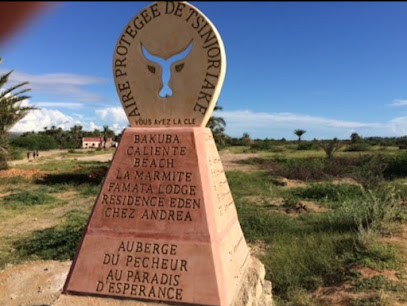
Arboretum d'Antsokay
Explore the Arboretum d'Antsokay, a lush botanical garden in Madagascar showcasing unique flora and tranquil surroundings for nature lovers.
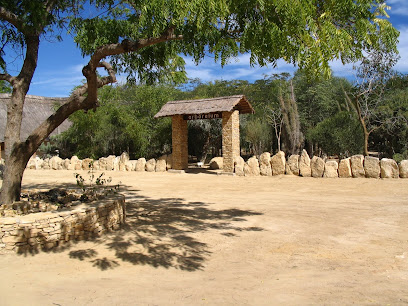
Aéroport de Tuléar
Discover Madagascar's coastal charm through Aéroport de Tuléar, your gateway to stunning beaches, unique wildlife, and vibrant local culture.
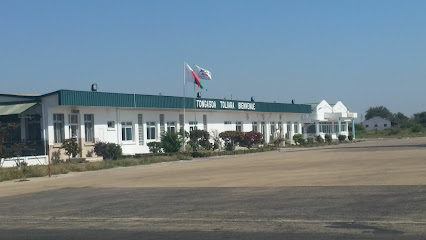
Anakao Express
Experience the beauty of Madagascar’s coast with Anakao Express, your gateway to breathtaking boat tours and unforgettable aquatic adventures in Toliara.
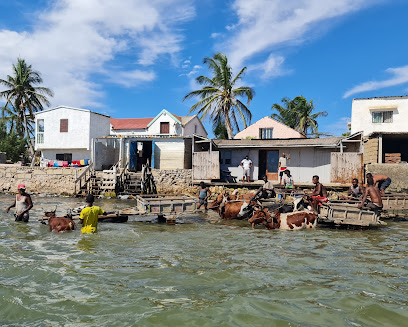
Musée Rabesandratana
Explore the vibrant cultural heritage of Madagascar at Musée Rabesandratana in Toliara, a must-visit museum for every traveler.
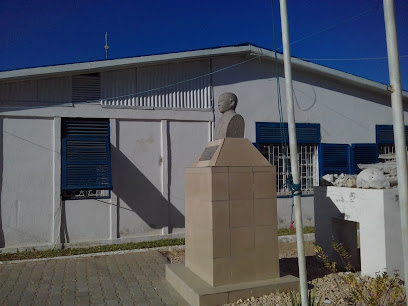
Sarodrano cave
Explore the breathtaking Sarodrano Cave in Madagascar, a stunning nature preserve filled with mesmerizing rock formations and diverse wildlife.
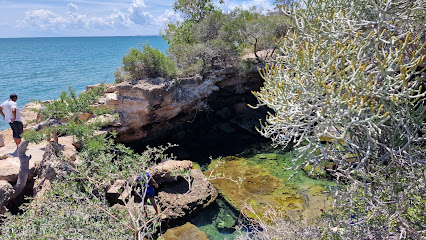
Port de Tuléar
Discover Port de Toliara, Madagascar's vibrant coastal gateway, where culture, stunning landscapes, and rich marine life await your exploration.
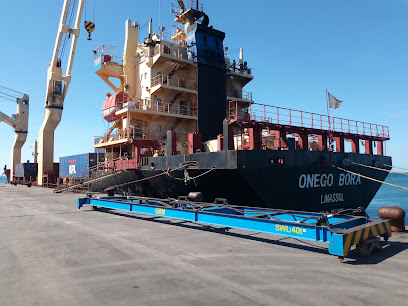
Andaboy
Discover the enchanting beauty of Andaboy in Toliara, Madagascar, where nature meets culture in an unforgettable experience.
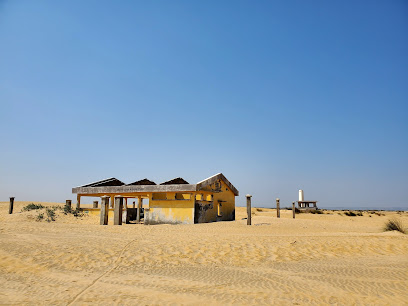
Plage de Madiorano
Experience the tranquil beauty of Plage de Madiorano, a hidden gem on Madagascar's Ifaty coast, perfect for relaxation and adventure.
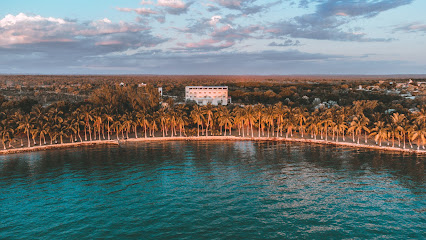
Dune d'Andaboy
Discover the breathtaking Dune d'Andaboy near Toliara, where golden sands meet the azure waters of Madagascar's coastline.
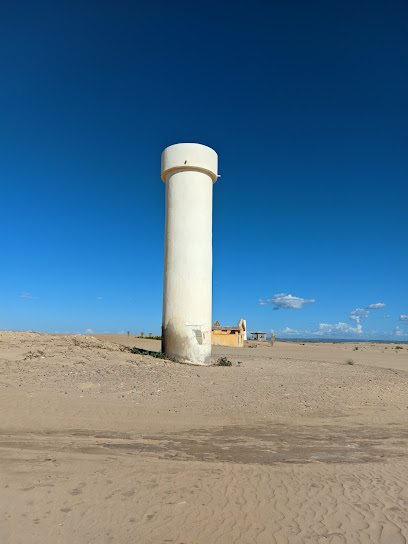
Dubai de Tuléar
Explore the stunning landscapes and vibrant culture of Dubai de Tuléar, a must-visit tourist attraction in Toliara, Madagascar, perfect for every traveler.
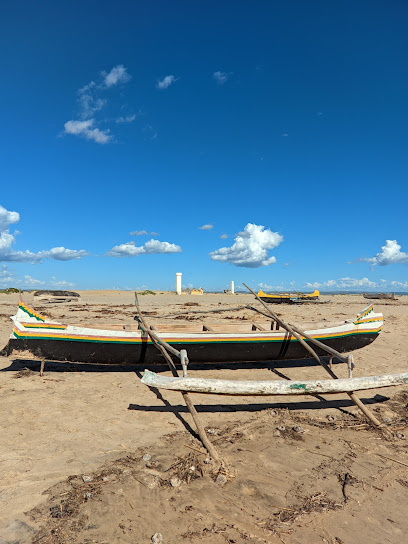
TOLIARA
Experience the charming coastal city of Toliara, Madagascar, with its stunning beaches, vibrant markets, and rich cultural heritage.
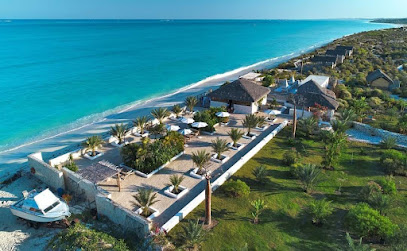
Salary Bay
Experience the charm of Salary Bay, a serene hotel in Toliara, Madagascar, offering comfort and breathtaking coastal views for an unforgettable stay.

Andranomena Toliara
Explore creativity at Andranomena Toliara, where professional graphic design meets the vibrant culture of Madagascar.

Unmissable attractions to see
Arboretum d'Antsokay
Explore the Arboretum d'Antsokay, a breathtaking botanical garden in Toliara, showcasing Madagascar's unique flora and captivating landscapes.
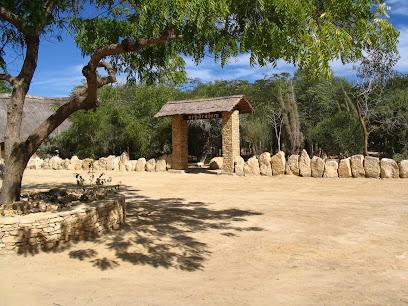
Musée Rabesandratana
Explore the rich cultural heritage of Madagascar at Musée Rabesandratana, a captivating museum in Toliara showcasing the island's unique history and artistry.
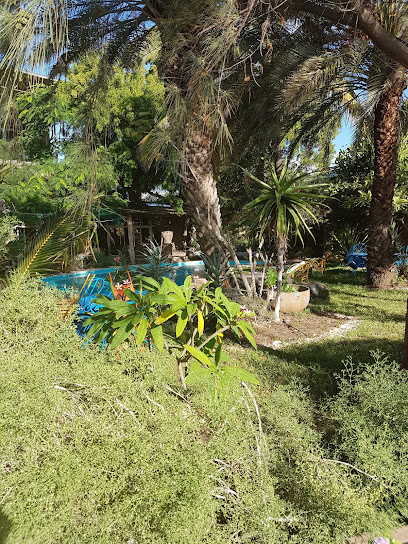
Andaboy
Explore Andaboy, Toliara: A captivating tourist attraction blending nature's beauty with rich cultural experiences in Madagascar.
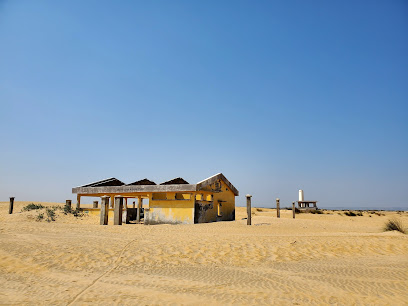
Tropique du Capricorne
Explore the breathtaking beauty of Tropique du Capricorne, a stunning tourist attraction in Ankilibe, Madagascar, rich in biodiversity and natural wonders.
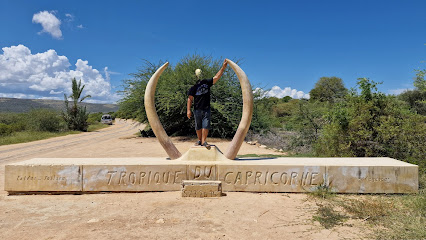
Ankilisoafilira
Explore the natural beauty and vibrant culture of Ankilisoafilira, a captivating tourist attraction in Toliara, Madagascar.
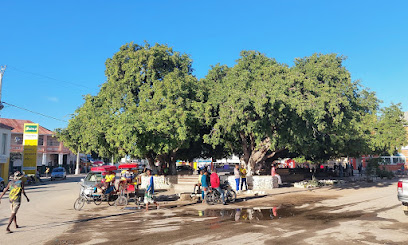
Chez RAMBO Anakao
Discover the culinary delights of Madagascar at Chez RAMBO Anakao, where fresh seafood meets breathtaking ocean views in a cozy setting.

Dune d'Andaboy
Discover the breathtaking beauty of Dune d'Andaboy, Madagascar's majestic sand dunes, perfect for adventure seekers and nature lovers alike.
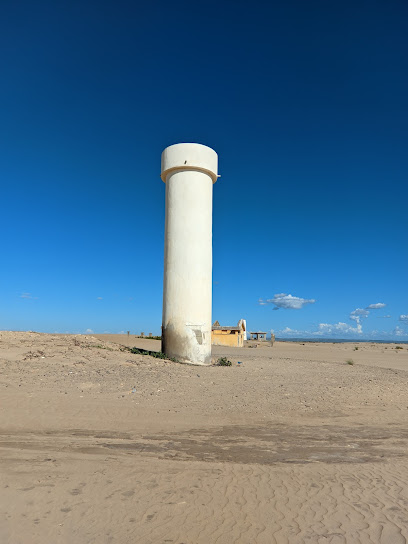
Spiny Forest
Explore the Spiny Forest in Madagascar, a unique UNESCO World Heritage site showcasing incredible biodiversity and stunning landscapes.

Xway Adventure Madagascar
Experience the thrill of ATV rides and breathtaking hikes at Xway Adventure Madagascar, your gateway to the stunning landscapes of Toliara.
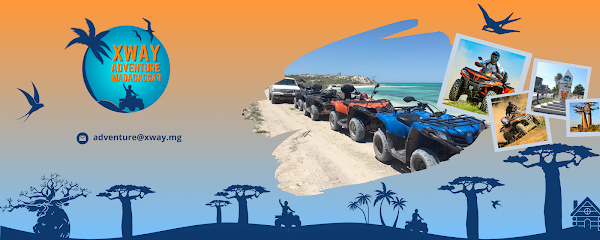
Dubai de Tuléar
Explore the vibrant charm of Dubai de Tuléar in Toliara, Madagascar—where culture, architecture, and unforgettable experiences await every traveler.
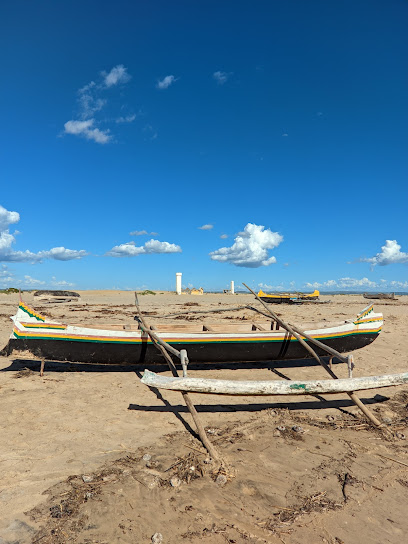
Disney Park
Unleash your inner child at Disney Park in Toliara, where thrilling rides, beloved characters, and unforgettable memories await every visitor.

Anketraka
Explore the tranquil beauty of Anketraka Garden in Toliara, Madagascar, where nature's serenity awaits amidst unique flora and peaceful pathways.
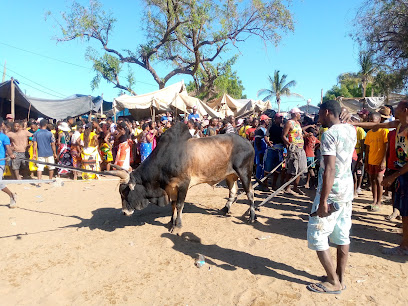
Jirama andranomena toliara
Experience the breathtaking biodiversity and stunning landscapes of Jirama Andranomena, a premier tourist attraction in Toliara, Madagascar.

Makay
Explore the breathtaking landscapes and unique wildlife of Makay, Madagascar's hidden gem for adventurous travelers seeking natural beauty.

Essential places to dine
Le Jardin Restaurant
Discover exquisite Malagasy flavors amidst tranquil gardens at Le Jardin Restaurant in Toliara - a must-visit culinary destination.
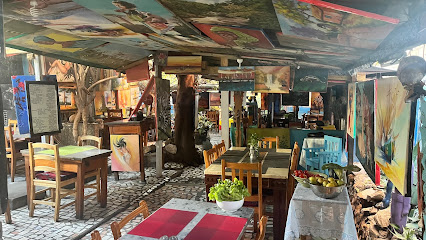
Blu Bar
Discover culinary delights at Blu Bar in Toliara—where vibrant flavors meet warm Malagasy hospitality for an unforgettable dining experience.
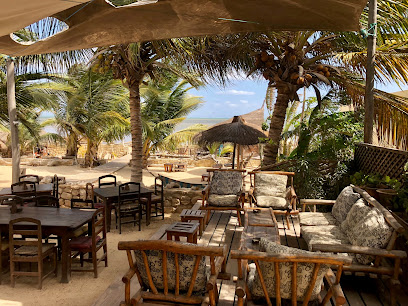
Corto Maltese
Experience authentic Italian cuisine at Corto Maltese in Toliara—where every meal is a celebration of flavor and warmth.
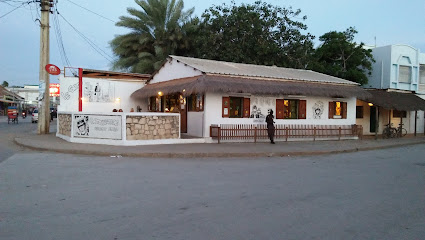
L'Etoile de Mer
Experience the taste of Madagascar at L'Etoile de Mer – a culinary haven in Toliara featuring fresh seafood and local delicacies.
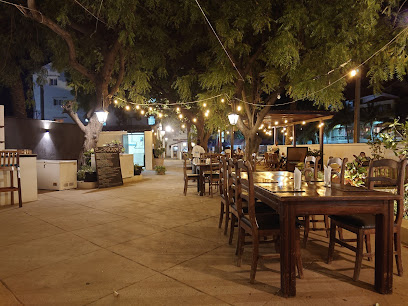
Gelateria
Discover the exquisite flavors of Madagascar at Gelateria in Toliara – an ice cream paradise awaiting your visit.
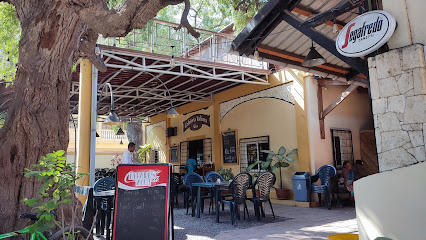
Restaurant le Boeuf
Experience exquisite dining with ocean views at Restaurant le Boeuf in Toliara - where fresh flavors meet stunning scenery.
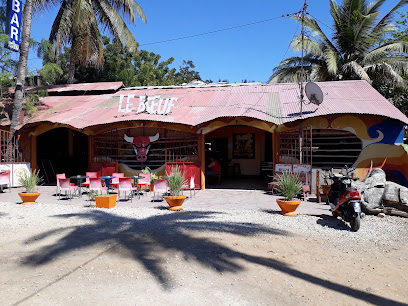
MARINA BLUE
Experience the best of Madagascar's flavors at Marina Blue, where fresh ingredients meet culinary excellence in Toliara.
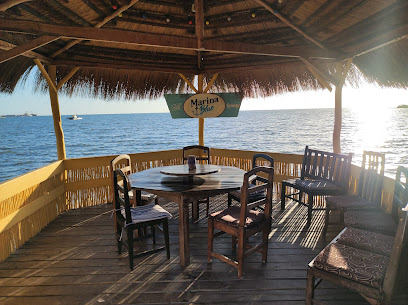
ESTEREL - Bar Pizzeria Ristorante Italiano
Experience authentic Italian cuisine at Esterel in Toliara—where every dish tells a story and every bite is a delight.
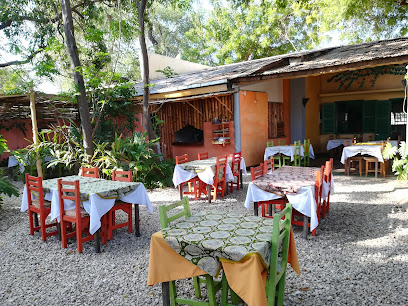
OASIS CAFE
Discover authentic Malagasy cuisine at Oasis Cafe in Toliara – where every meal is a celebration of local flavors.
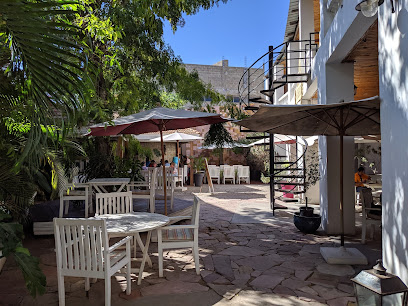
La Gastronomie Pizza
Experience authentic flavors at La Gastronomie Pizza in Toliara - a must-visit restaurant offering delicious pizzas with local flair.
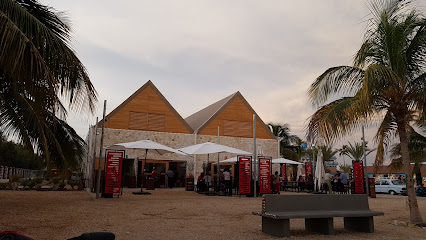
Au pti creux, tuléar
Experience authentic Malagasy halal cuisine at Au pti creux in Toliara – a culinary gem offering delightful flavors and a welcoming atmosphere.
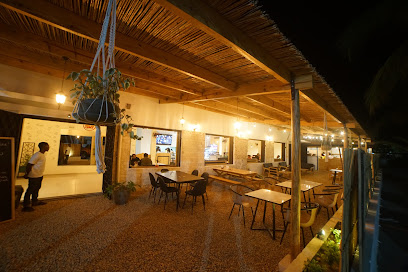
Chez Alice
Experience authentic Malagasy cuisine at Chez Alice in Toliara, where every dish tells a story of flavor and tradition.
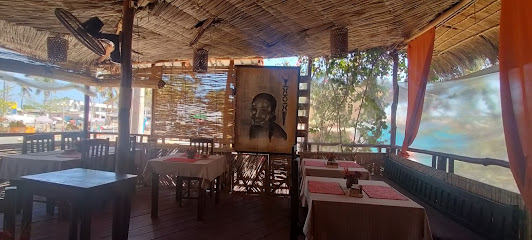
Hotel Le Palmier and Restaurant Le Zebu Philosophe
Discover comfort at Hotel Le Palmier paired with exquisite dining at Restaurant Le Zebu Philosophe in Toliara - where luxury meets local flavor.

HOTEL SOAVADIA
Experience authentic Malagasy cuisine at Hotel Soavadia in Toliara – where flavor meets tradition in a welcoming atmosphere.
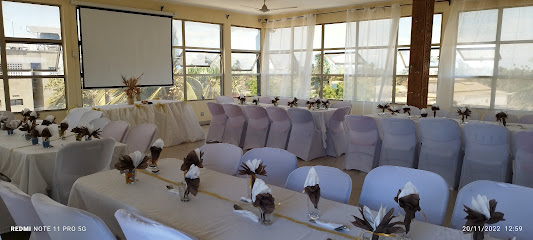
La Colombe
Discover authentic Malagasy cuisine at La Colombe in Toliara - where fresh ingredients meet delightful flavors.
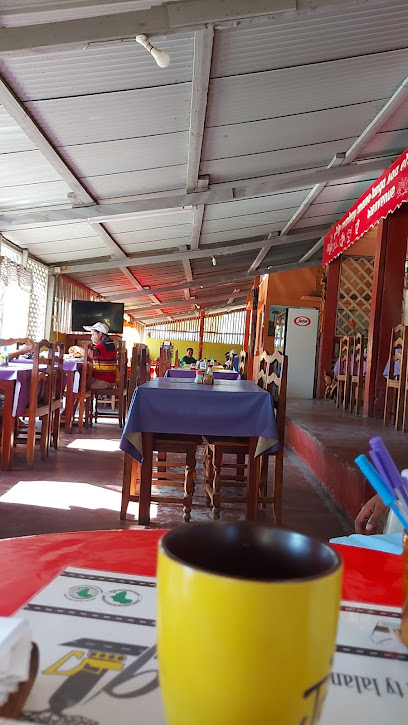
Markets, malls and hidden boutiques
SCORE TULEAR
Discover SCORE TULEAR in Toliara for a wide selection of groceries, local products, and everyday essentials in a friendly supermarket environment.
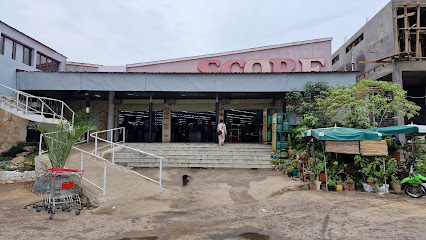
Number One
Explore Toliara's premier hardware store, offering quality tools and supplies in the heart of Madagascar's vibrant market scene.

Magasin Jamal Tulear
Explore Magasin Jamal Tulear for unique gifts and local crafts in Toliara, Madagascar – a must-visit for every traveler.
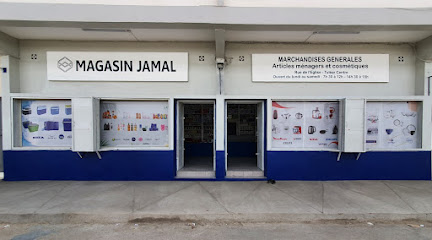
Quincaillerie Du Centre
Discover Toliara's vibrant culture at Quincaillerie Du Centre, a unique hardware store offering local crafts and tools in Madagascar's bustling market.
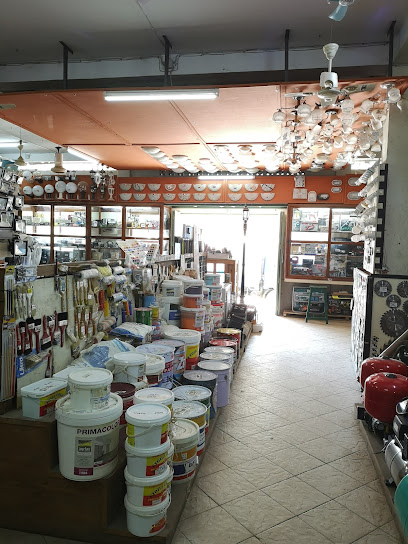
Bazar Sakama
Explore Bazar Sakama in Toliara, a vibrant market brimming with local crafts, street food, and the warm spirit of Madagascar.
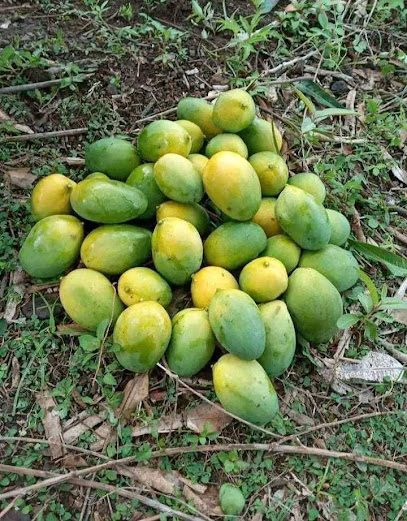
LIBRAIRIE FIDIO
Explore Librairie Fidio in Toliara: a haven for book lovers and a treasure trove of local and international literature.

Miellerie Tropicale
Experience the unique flavors of Madagascar at Miellerie Tropicale, where local wines and honey come together in a delightful tasting adventure.
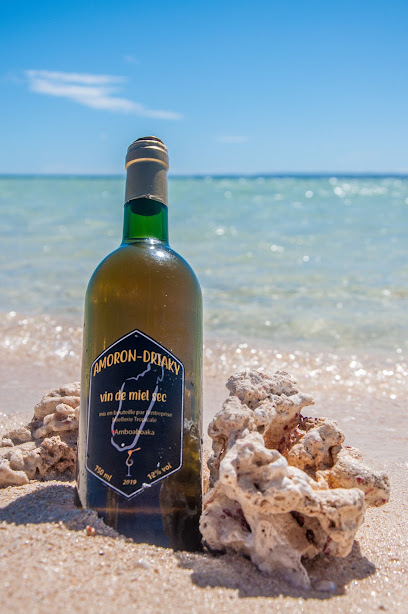
Quincaillerie du Marché
Explore Toliara's vibrant hardware store, Quincaillerie du Marché, where local culture meets quality tools and equipment for all your DIY needs.

FASHION POINT
Discover the essence of Toliara's fashion scene at Fashion Point, where local styles meet contemporary trends.

Tiss mode
Explore Tiss Mode in Toliara for a vibrant selection of local fabrics, perfect for fashion enthusiasts and travelers seeking unique souvenirs.

Jumelles Boutik
Explore Jumelles Boutik in Toliara for unique Malagasy gifts, local crafts, and authentic souvenirs reflecting the spirit of Madagascar.
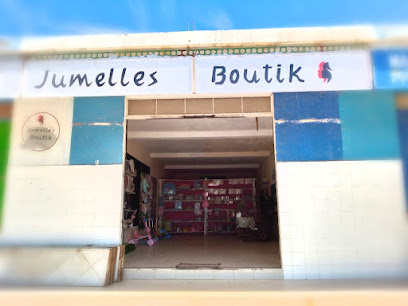
Andamasiny
Discover the charm of Madagascar at Andamasiny, Toliara's premier outlet store offering unique souvenirs and local craftsmanship.

Aigle d'Or Toliara
Discover the cultural richness of Madagascar at Aigle d'Or Toliara, where local crafts and unique souvenirs await your exploration.

CAP MADA MODE
Explore the vibrant fashion scene at CAP MADA MODE, Toliara's premier clothing store for unique Malagasy styles and sustainable fashion.

Marché de BAZARIBE
Explore Marché de BAZARIBE, Toliara's vibrant market, where local culture, crafts, and cuisine come together in a colorful experience.

Essential bars & hidden hideouts
Le Jardin Restaurant
Experience the essence of Madagascar at Le Jardin Restaurant, where vibrant flavors meet a charming garden ambiance in Toliara.
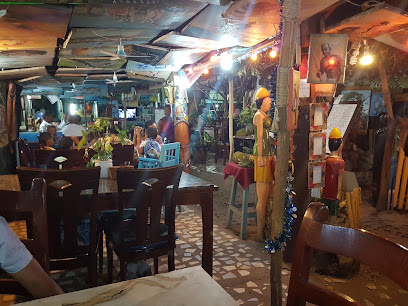
Blu Bar
Experience the vibrant culinary scene of Toliara at Blu Bar, where local flavors and international cuisine come together in an inviting atmosphere.
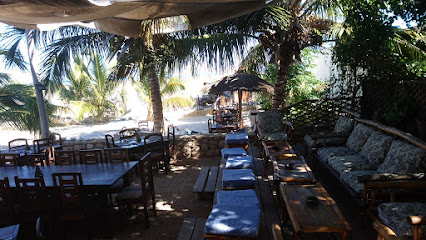
L'Etoile de Mer
Discover the culinary treasures of Madagascar at L'Etoile de Mer, a seafood lover's paradise offering fresh, local flavors in Toliara.
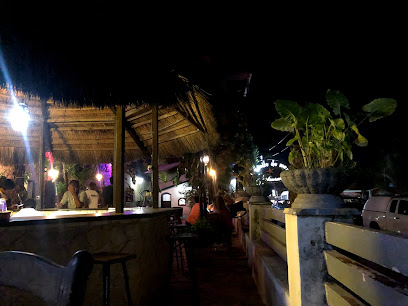
Restaurant le Boeuf
Experience the best of local cuisine and ocean views at Restaurant le Boeuf in Toliara, a must-visit for every culinary enthusiast.
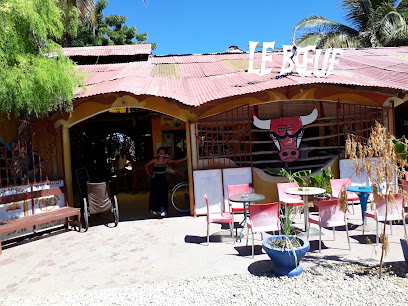
Le Point d'Exclamation Lounge Bar
Experience the vibrant nightlife of Antananarivo at Le Point d'Exclamation Lounge Bar, where cocktails, music, and local culture come together.
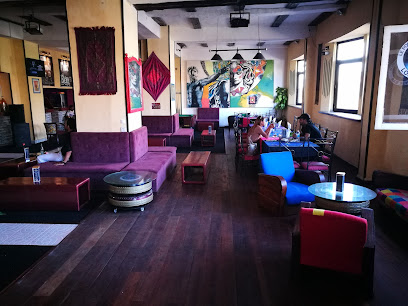
ESTEREL - Bar Pizzeria Ristorante Italiano
Experience the authentic taste of Italy at ESTEREL - Bar Pizzeria Ristorante Italiano in Toliara, where every bite delights your senses.
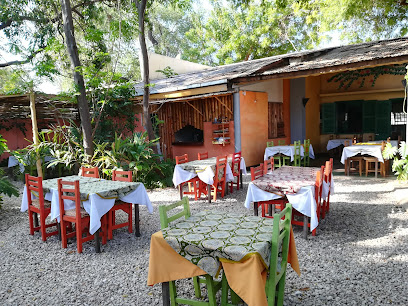
OASIS CAFE
Discover the flavors of Madagascar at Oasis Café, Toliara's premier dining destination for locals and tourists alike.
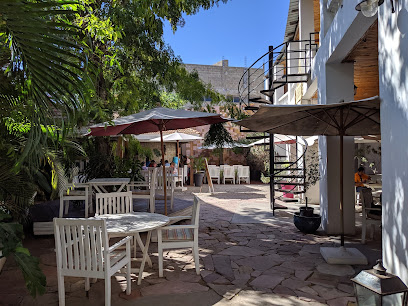
Old 7 bar
Discover Antananarivo's nightlife at Old 7 Bar, where cocktails, culture, and camaraderie blend seamlessly.
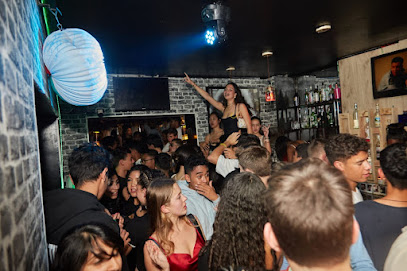
Manson by Marco
Discover the lively atmosphere of Manson by Marco, a must-visit pub in Antananarivo, where local culture meets modern comfort.
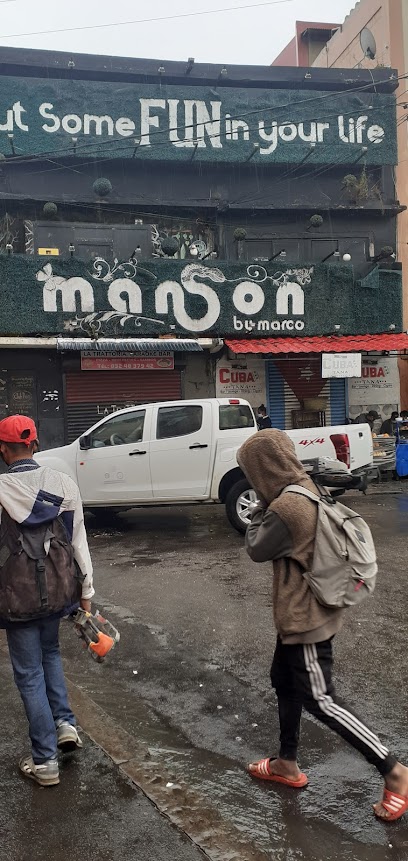
Gourmand'ice
Experience the heart of Madagascar's culinary scene at Gourmand'ice in Toliara, where local flavors and warm hospitality await.

Tam Tam café
Experience the vibrant atmosphere of Tam Tam Café in Toliara, where refreshing drinks and local flavors await you in a cozy setting.
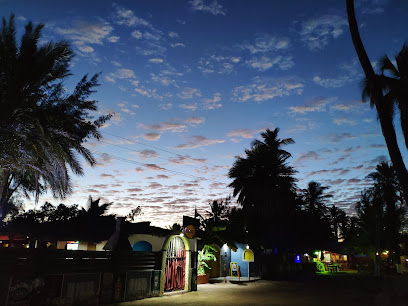
Bar Tongasoa
Experience the vibrant flavors of Toliara at Bar Tongasoa, your go-to fast food destination for a quick and satisfying meal.
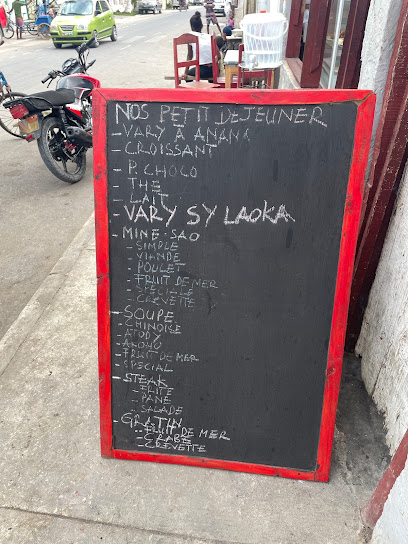
The secret 601
Experience the local culture at The Secret 601, a vibrant pub in Toliara offering local brews, delicious snacks, and a friendly atmosphere.

Narda
Discover the vibrant atmosphere of Narda, the perfect bar in Toliara for refreshing drinks and local culture.

Local Phrases
-
- HelloSalama
[sah-lah-mah] - GoodbyeVeloma
[veh-loh-mah] - YesEny
[eh-ny] - NoTsia
[tsyah] - Please/You're welcomeAzafady
[ah-zah-fah-dy] - Thank youMisaotra
[mee-sah-oh-trah] - Excuse me/SorryAzafady
[ah-zah-fah-dy] - How are you?Inona ny vaovao?
[ee-noo-nah nee vah-oh-vah-oh] - Fine. And you?Tsara. Ianao?
[tsah-rah. ee-ah-nah-oh] - Do you speak English?Miteny teny anglisy ve ianao?
[mee-teh-ny teh-ny ahng-lee-see veh ee-ah-nah-oh] - I don't understandTsy miaraka amin'izay
[tsy mee-ah-rah-kah ah-meen-ee-zay]
- HelloSalama
-
- I'd like to see the menu, pleaseTe hamarino ny laharana, azafady
[teh hah-mah-ree-noh nee lah-hah-rah-nah, ah-zah-fah-dy] - I don't eat meatTsy mihinana hena
[tsy mee-hee-nah-nah heh-nah] - Cheers!Santé!
[sahn-teh] - I would like to pay, pleaseTe handray vola, azafady
[teh hahn-dry vo-lah, ah-zah-fah-dy]
- I'd like to see the menu, pleaseTe hamarino ny laharana, azafady
-
- Help!Fanampiana!
[fah-nahm-pee-ah-nah] - Go away!Mandehana!
[mahn-day-hah-nah] - Call the Police!Mangataka ny polisy!
[mahng-ah-tah-kah nee poh-lee-see] - Call a doctor!Mangataka dokotera!
[mahng-ah-tah-kah doh-koh-teh-rah] - I'm lostSarotra aho
[sah-roo-trah ah-hoo] - I'm illTsy mandeha ahy
[tsy mahn-day-hah ah-y]
- Help!Fanampiana!
-
- I'd like to buy...Te hanoko...
[teh hah-noo-koh...] - I'm just lookingManontany fotsiny aho
[mah-noo-nah-ny foh-tsee-ny ah-hoo] - How much is it?Ohatra ny vidiny?
[oh-hah-trah nee vee-dee-ny] - That's too expensiveMahafinaritra be
[mah-hah-fee-nah-ree-trah beh] - Can you lower the price?Afaka mampiditra ny vidiny?
[ah-fah-kah mahm-pee-dee-trah nee vee-dee-ny]
- I'd like to buy...Te hanoko...
-
- What time is it?Inona no ora?
[ee-noo-nah noh oh-rah] - It's one o'clockIreo iray ora
[ee-ray oh-rah] - Half past (10)Efatra sy folo
[eh-fah-trah see foh-loh] - MorningMaraina
[mah-rah-ee-nah] - AfternoonAlina
[ah-lee-nah] - EveningHariva
[hah-ree-vah] - YesterdayOmaly
[oh-mah-ly] - TodayAnio
[ah-nyoo] - TomorrowRy zao
[ree zah-oh] - 1Iray
[ee-ray] - 2Roa
[roo-ah] - 3Telo
[teh-loh] - 4Efatra
[eh-fah-trah] - 5Dimy
[dee-mee] - 6Enina
[eh-nee-nah] - 7Fitohizana
[fee-toh-hee-zah-nah] - 8Valo
[vah-loh] - 9Sivy
[see-vee] - 10Folo
[foh-loh]
- What time is it?Inona no ora?
-
- Where's a/the...?Aiza ny...
[ah-ee-zah nee] - What's the address?Inona ny adiresy?
[ee-noo-nah nee ah-dee-res] - Can you show me (on the map)?Afaka mandika aho (amin'ny saritany)?
[ah-fah-kah mahn-dee-kah ah-hoo ah-meen-nee sah-ree-tah-nee] - When's the next (bus)?Aiza ny farany (fiaran-dalamby)?
[ah-ee-zah nee fah-rah-nee fee-ah-rahn-dah-lahm-bee] - A ticket (to ....)Tiketa (hita...)
[tee-keh-tah (hee-tah...)]
- Where's a/the...?Aiza ny...
History of Toliara
-
The region around Toliara, previously known as Tuléar, has been inhabited for centuries by indigenous tribes such as the Vezo, Mahafaly, and Antandroy. These tribes have traditionally relied on fishing, cattle herding, and agriculture, adapting their lifestyles to the arid climate of southwestern Madagascar.
-
The first recorded European contact with the Toliara region was in the early 16th century when Portuguese explorers arrived on the coast. These initial encounters paved the way for subsequent visits by French and British explorers throughout the 17th and 18th centuries. The region's strategic coastal position made it a point of interest for European powers.
-
In the late 19th century, Toliara became part of the French colonial empire. The French established a colonial administration, built infrastructure, and developed the port of Toliara, which became a key trading hub. The influence of French culture and language is still evident in the city today.
-
During World War II, Madagascar was a strategic location in the Indian Ocean. In 1942, the island was the site of the Battle of Madagascar, where Allied forces fought to prevent the Japanese from using Madagascar as a base. Toliara's port and its surrounding areas were involved in the military operations.
-
Madagascar gained independence from France in 1960, and Toliara, like other parts of the country, experienced significant changes. The city developed as a regional center of commerce, education, and culture. The University of Toliara, established in 1971, became an important institution for higher education in the region.
-
Toliara is known for its rich cultural heritage, with vibrant traditions rooted in the practices of the Vezo, Mahafaly, and Antandroy peoples. The city hosts various festivals throughout the year, such as the 'Santabary' festival, celebrating the rice harvest, and the 'Zegny' festival, showcasing traditional music and dances.
-
In recent decades, Toliara has become a focal point for environmental conservation and ecotourism. The nearby Tsinjorivo and Reniala Nature Reserves, as well as the Great Reef of Toliara, attract researchers and tourists alike. Efforts to protect the unique biodiversity of the region are ongoing, with local and international organizations working together to promote sustainable tourism.
Toliara Essentials
-
Toliara is located in southwestern Madagascar. The nearest international airport is Toliara Airport (TLE), also known as Tulear Airport, which has flights connecting to Antananarivo, the capital city of Madagascar. From Antananarivo, you can take a domestic flight to Toliara, which takes approximately 1.5 hours. Alternatively, you can take a bus or a private car from Antananarivo to Toliara, but be prepared for a long journey of around 15-20 hours due to the condition of the roads.
-
In Toliara, transportation options include taxis, tuk-tuks (known locally as 'bajaj'), and rental cars. Taxis are relatively affordable and can be found throughout the city. Tuk-tuks are a popular and inexpensive way to get around for short distances. If you prefer more independence, renting a car is an option, but be aware that roads can be rough and driving conditions challenging. For longer trips, shared minibuses (taxi-brousse) are available and connect Toliara to other regions.
-
The official currency in Madagascar is the Malagasy Ariary (MGA). Credit cards are accepted in some hotels, restaurants, and shops, but it's advisable to carry cash, especially in smaller establishments and local markets. ATMs are available in Toliara, but it's wise to withdraw sufficient cash as availability can be inconsistent. Currency exchange services are available at banks and some hotels.
-
Toliara is generally safe for tourists, but it's important to take standard precautions. Avoid walking alone at night, especially in poorly lit areas. Be cautious in crowded places and keep an eye on your belongings to avoid pickpocketing. Areas like the central market can be busy, so stay vigilant. Some neighborhoods may have higher crime rates, so it's best to ask locals or your accommodation for advice on safe areas to explore.
-
In case of emergency, dial 117 for police assistance and 124 for medical emergencies. The main hospital in Toliara is Centre Hospitalier Régional de Toliara, which provides basic medical services. It's highly recommended to have travel insurance that covers medical emergencies. For minor health issues, pharmacies are available in the city where you can purchase over-the-counter medications.
-
Fashion: Do dress modestly, especially when visiting villages or religious sites. Lightweight, breathable clothing is recommended due to the hot climate. Religion: Do respect local customs and traditions. When visiting churches or religious sites, dress conservatively and remove your shoes if required. Public Transport: Do be respectful and patient when using public transport. Don't expect punctuality, as schedules can be flexible. Greetings: Do greet people with a handshake or a nod. It's polite to greet everyone when entering a room. Eating & Drinking: Do try local dishes and accept food offerings graciously. Don't refuse hospitality, as it is considered impolite.
-
To experience Toliara like a local, visit the local markets, such as the Bazar Be, where you can buy fresh produce and traditional Malagasy goods. Engage with locals, as they are often friendly and willing to share stories about their culture and history. Don't miss visiting the Arboretum d'Antsokay, a botanical garden showcasing the unique flora of Madagascar. For a unique experience, take a trip to the fishing village of Ifaty, known for its beautiful beaches and vibrant marine life.
Nearby Cities to Toliara
-
Things To Do in Ifaty
-
Things To Do in Mandrare River
-
Things To Do in Fort Dauphin
-
Things To Do in Fianarantsoa
-
Things To Do in Manakara
-
Things To Do in Antsirabe
-
Things To Do in Antananarivo
-
Things To Do in Andasibe
-
Things To Do in Toamasina
-
Things To Do in Inhambane
-
Things To Do in Maxixe
-
Things To Do in Vilanculos
-
Things To Do in Mahajanga
-
Things To Do in Majunga
-
Things To Do in Maputo









